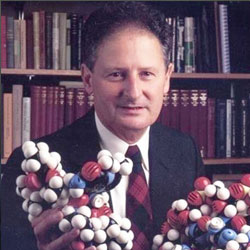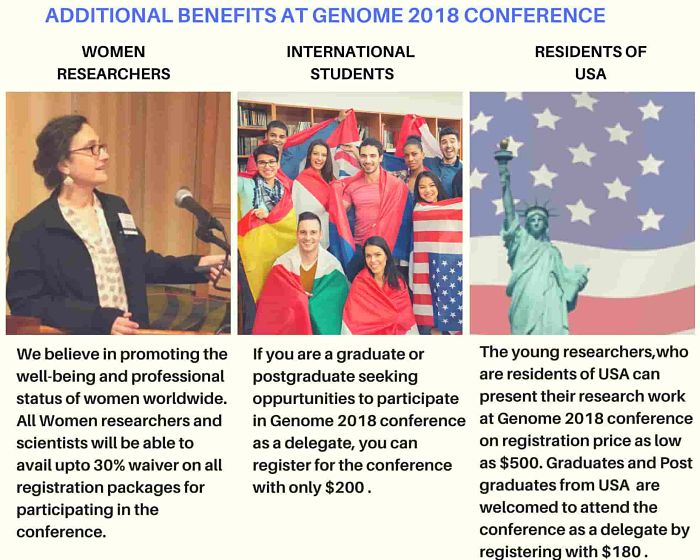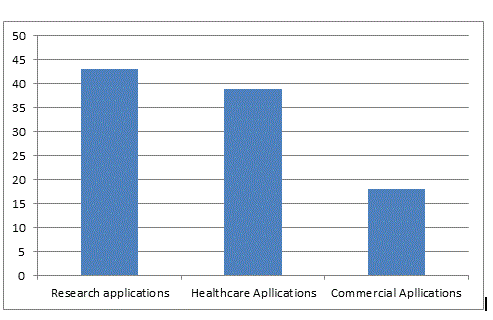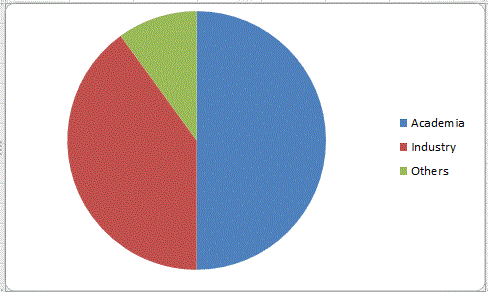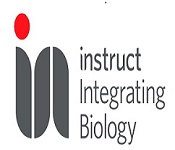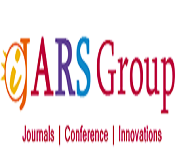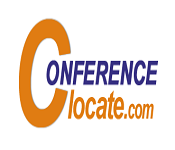Theme: Leading Edge Research and Insights of Genomics and Pharmacogenomics
Genome 2018
Genome 2018 welcomes every one of the members from everywhere throughout the world to attend the 11th International Conference on Genomics and Pharmacogenomics amid September 21-22,2018 in Philadelphia, USA which incorporates provoke keynote introductions, Oral introductions, Poster introductions and Exhibitions. We are regarded to invite all of you to trade and offer your perspectives and experience on Genomics and Pharmacogenomics.
Genomics is a region within hereditary qualities (i.e., genetics) that concerns the sequencing and examination of a creature’s genome. Genomics additionally includes the investigation of intra-genomic procedures, for example, epistasis, heterosis, and pleiotropy and the interactions between the loci and alleles inside the genome. The fields of molecular biology (subatomic science) and genetics are mostly concerned with investigation of role and function of the single genes, a noteworthy subject in today's biomedical research. By difference, genomics does not include single quality research unless the intention is to comprehend a solitary quality's belongings in setting of the whole genome.
Details of Genome 2018 conference in the USA
Conference Series LLC Ltd. is organizing Genome 2018 conference during September 21-22,2018 at Philadelphia, USA. We organize Genetics and Molecular Biology meetings globally in the fields related to Genomics, Tissue preservation, Regenerative Medicine, Biobanking, and Tissue Engineering.
|
Conference Name |
Place |
Date |
|
Genome 2018 conference |
Philadelphia,USA |
Sep 21-22,2018 |
Scope and Importance
The Scope of the conference is to gather all the Doctors, Researchers, Business Delegates and Scientists to approach and deliver all the attendees about the latest scientific advancements on the respective sphere. This Genomics and Pharmacogenomics Conference is the premier event focusing on understanding individual and organizational behavior and decision-making related to genetics, genomics, molecular biology, biotechnology, pharmacy, medicine and academia.
The conference unites assets and expertise to scaffold Genomics and Pharmacogenomics to unveil noteworthy worldwide disclosures in Human Health. It gives an awesome stage to cover recent breakthroughs in Genetics, Pharmacogenomics, Bioinformatics, Plant Genomics, Biotechnology new genomic apparatuses and its partnered territories. The theme of the gathering will focus on making an interpretation of genomic advances into Human Benefits and to address current trends in Genomics for better future. With individuals from around the globe concentrated on learning about Genomics and Pharmacogenomics and its advances; this is your best chance to achieve the biggest amalgamation of members from the Genomics and its partnered territories. Direct introductions, disseminate data, meet with present and potential researchers, make a sprinkle with new medication advancements, and get name acknowledgment at this 2-day occasion. Widely acclaimed speakers, the latest strategies, improvements, and the freshest updates in Genomics and Pharmacogenomics are signs of this conference.
Target Audience:
· Genomics and Pharmacogenomics Students
· Genomics and Pharmacogenomics Researchers
· Genomics and Pharmacogenomics Faculty
· Genomics Scientists
· Genomics Colleges
· Pharmacology Scientists
· Pharmacology Health Professionals
· Genetics Associations and Societies
· Geneticists
· Genetic Counselors
· Bio-pharmacists
· Business Entrepreneurs
· Training Institutes
· Software developing companies
· Data Management Companies
Conference highlights
· Functional Genomics
· Structural Genomics
· Microbial Genomics
· Next generation sequencing and other techniques
· Biomarkers and Microarrays
· Animal Genetics and Genomics
· Epigenomics and Epigenetics
· Cancer Genomics
· Clinical Genomics
· Genetic Disorders
· Genomic Instability
· Genomic Medicine
· Pharmacogenomics
· Comparative Genomics
· Trends in Genomics and Pharmacogenomics
· Personalized and Regenerative Medicine
· Plant Genomics and Molecular Pharming
· Proteomics
· Gene Editing and Genetic Engineering
· Bioinformatics and Computational Biology
· Nutrigenomics
Sessions / Tracks
Track 1: Functional genomics
Functional Genomics utilize tremendous abundance of information delivered by genomic and transcriptomic tasks to depict gene functions and interactions. Drifts in Functional Genomics are, Affymetrix, raised as an early trailblazer around there by creating a useful approach to analyze gene function as a framework. Nimble Gen Systems and Febit, are creating manufactured micro-arrays that are delivered utilizing a smaller scale reflect based, veil less framework.
American Society of Transplant Surgeons Up to $100,000 every year ($50,000 in real money and up to $50,000 in-kind) for 2 years. For the purpose of this grant, in-kind support is restricted to the cost of tests. Research of Genomics Market in the US (2014- 2018) and Global Genomics Market (2014-2018) reports to its store. Useful Genomics showcase in the US is figure to develop at a CAGR of 7.28% over the period 2013-2018 while the worldwide genomics industry is anticipated to develop at 11.21% CAGR amid a similar time.
Track 2: Structural Genomics
Structural Genomics endeavors to determine the 3 Dimensional structure of each protein encoded by the genome and used to foresee novel protein folds based on other structural data. It can likewise take the upside of complete genome sequence in order to decide protein structure. The gene sequence of the target protein can be compared with a known sequence and information of the structure can be gathered from known protein structure.
Track 3: Microbial Genomics
Microorganisms were the principal life forms on Earth and preceded before the creatures and plants by more than 3 billion years. They are the establishment of the biosphere, from both a transformative and an ecological viewpoint. It has been evaluated that microbial species include around 60% of the Earth's biomass. The hereditary, metabolic and physiological assorted variety of microbial species is far more prominent than that found in plants and creatures. Be that as it may, the decent variety of the microbial world is to a great extent obscure, with short of what one-portion of 1% of the evaluated 2– 3 billion microbial species recognized. Of those species that have been portrayed, their organic assorted variety is phenomenal, having adjusted to develop under extremes of temperature, pH, salt focus and oxygen levels.
Maybe no other territory of research has been so invigorated by the use of genomic innovation than the microbial field. It was just five years back that The Institute for Genomic Research (TIGR) distributed the primary finish genome arrangement for a free-living life form, Haemophilus influenzae2; since that initially report another 27 microbial genome successions have been distributed, with no less than 10– 20 different ventures at or close culmination. This advance speaks to, by and large, one finished genome grouping at regular intervals and all signs are that this pace will keep on accelerating.
Track 4: Next generation sequencing and other techniques
Genomics deals with structure, function, evolution and mapping of genomes. There are many techniques in genomics which includes Genomic DNA isolation, DNA separation, Cloning and vectors, detection of genes of interest and so on. These techniques are very much useful in the field of medicine to diagnose infectious diseasesand are also used in forensics, agriculture.
Track 5: Biomarkers and Micro arrays
A biomarker, or natural marker, is a measurable indicator of some biological state or condition. A biomarker is a test that can be utilized to assist analyze a condition or to help screen a condition or reaction to treatment. They are utilized as a part of numerous ranges of medication both in standard therapeutic practice and furthermore in research, particularly in clinical trials. In drug, a biomarker can be a traceable substance that is brought into a life form as a way to analyze organ work or different parts of wellbeing. For instance, rubidium chloride is utilized as a radioactive isotope to assess perfusion of heart muscle.
Biomarkers keep on becoming progressively significant in research and social insurance applications, as confirm by the worldwide market for items required in their ID, approval, and utilize anticipated to achieve USD 53.34 Billion by 2021 from USD 27.95 Billion in 2016, developing at a CAGR of 13.8% amid the conjecture time frame (2016–2021).
Micro array is a tool used in laboratory to detect the expressions of thousands of genes at the same time. Micro array technology has extensive application in Pharmacogenomics. Comparative analysis of the genes from a diseased and a normal cell will help to identify the biochemical constitution of the proteins which are synthesized by the diseased genes. The researchers can use this information for synthesizing drugs that combat with these proteins and reduce their effect.
DNA micro array technology helps in the identification of new genes, to learn more about the diseases like heart diseases, mental illness, infectious disease and especially the study of cancer.
Track 6: Animal Genetics and Genomics
Animal Genetics examines the heredity and variations in animals.Animals have independent inheritance of characters as a result of their substantial number of chromosomes. Hybrid Analysis is the key strategy to study the inheritance of characters and it decides the idea of numerous morphological, physiological and biochemical characteristics which much of the time depend just on one of a few sets of genes.
Track 7: Epigenomics and Epigenetics
Epigenomics is the investigation of the total arrangement of epigenetics alterations on the hereditary material of a cell, known as the epigenome. Epigenetic changes are reversible adjustments on DNA or histones that influence quality expression without modifying the DNA sequence. Epigenomics upkeep is a consistent procedure and assumes an imperative part in security of eukaryotic genomes by participating in critical organic systems like DNA repair. Plant flavones are said to be repressing epigenomic marks that cause cancers. Two of the most portrayed epigenetic alterations are DNA methylation and histone adjustment.
Epigenetic adjustments assume an imperative part in quality expression and control, and are included in various cell procedures, for example, in separation/advancement and tumorigenesis.
Track 8: Cancer genomics
Cancer (malignancy) Genomics is the investigation of hereditary transformations in charge of disease, utilizing genome sequencing and bioinformatics. Clinical genomics is to enhance cancer treatment and results lies in figuring out which sets of qualities and quality communications influence diverse subsets of growths. Global Cancer Genome Consortium (ICGC) is a willful logical association that gives a gathering to joint effort among the world's driving disease and genomic specialists.
Track 9: Clinical genomics
Clinical genomics is the utilization of genome sequencing to inform patient diagnosis and care and it is a quickly evolving field. Learning of the human genome is a long way from finish, however there are as of now uses for hereditary and genomic data in the center. Genome sequencing is relied upon to have the most effect in describing and diagnosing uncommon and acquired infections, stratifying people's tumors to guide treatment (exactness drug), giving data around a person's danger of creating ailment or their imaginable reaction to treatment (wellbeing administration)
The International Standards for Cytogenomic Arrays (ISCA) Consortium, of which OGT is a section, is a creating social event of sub-nuclear innate qualities labs adequately working towards improving human administrations through the establishment of principles for sub-nuclear testing, including the generation of standardized a CGH groups for clinical inherited qualities explore. The Cancer Cytogenomic Micro array Consortium (CCMC) is a near social event, starting late settled with the goal of growing the points of interest given by microarrays to threat investigate. These social occasions continue working towards outlining out a course of action of rules to ensure that sub-nuclear strategies improve and overhaul the organizations given by clinical research labs.
Track 10: Genetic Disorders
A Genetic Disorder is a hereditary issue caused by at least one anomalies in the genome, particularly a condition that is available from birth (innate). Most hereditary issue are very uncommon and influence one individual in each few thousands or millions.
Hereditary disarranges might be genetic, passed down from the parents' qualities. In other hereditary issue, deformities might be caused by new transformations or changes to the DNA. In such cases, the imperfection might be passed down in the event that it happens in the germ line. A similar sickness, for example, a few types of growth, might be caused by an acquired hereditary condition in a few people, by new transformations in other individuals, and for the most part by natural causes in other individuals.
Track 11: Genomic instability
Genomic instability is a mechanism in which a high frequency of mutation occurs inside the genome of a cellular lineage. These mutations include changes in DNA and RNA sequences, chromosomal rearrangements (aneuploidy). One of the sources of genomic stability is the high frequency of externally caused DNA damage since DNA damages can cause inaccurate translesion synthesis past the damages or errors in repair, leading to mutation. Another source of genome instability may be mutational reductions in expression of DNA repair genes. DNA repair is likely an important source of genome instability. The procedure of hereditary instability prompts aneuploidy, in which the cells introduce a chromosomic number that is either higher or lower than the normal complement for the species.
Track 12: Genomic medicine
Genomic medicine is characterized as a rising medicinal teach that includes utilizing genomic data around a person as a major aspect of their clinical care (e.g., for analytic or remedial basic leadership) and the well-being results and strategy ramifications of that clinical utilize. As of now, genomic solution is having an effect in the fields of oncology, pharmacology, uncommon and undiscovered ailments, and irresistible ailment.
The NHGRI Genomic Medicine Working Group (GMWG) has been social occasion master partners in a progression of genomic solution gatherings to examine issues encompassing the appropriation of genomic drug. Furthermore the working gathering gives direction to the National Advisory Council on Human Genome Research (NACHGR) and NHGRI in different zones of genomic medication usage, for example, laying out infrastructural requirements for reception of genomic solution, recognizing related endeavors for future coordinated efforts, and exploring progress generally speaking in genomic drug execution.
Sans cell circling DNA is additionally being investigated as a bio marker for tumors. As tumor cells bite the dust they discharge pieces of their transformed DNA into the circulation system. Sequencing this DNA can give bits of knowledge into the tumor and conceivable medications, and even be utilized to screen tumor movement (as a contrasting option to obtrusive biopsies).
At present, more than 100 FDA-endorsed drugs have pharmacogenomics data in their names, in differing fields, for example, analgesics, antivirals, cardiovascular medications, and hostile to growth therapeutics.
Track 13: Pharmacogenomics
Pharmacogenomics is the investigation of how genes influence a man’s reaction to drugs. This is generally a new field consolidates pharmacology(investigation of medications) and genomics(the investigation of genes and their capacities) to create successful, safe pharmaceuticals and dosages that will be custom fitted to a man’s hereditary makeup
These genetic differences are utilized to prevent from adverse drug reactions and to predict whether a medication will be effective for a specific individual. In the future, Pharmacogenomics will be used for the development of tailored drugs to treat wide range of health issues such as, cardiovascular disease, Alzheimer disease , cancer, HIV/AIDS, and asthma.
Significant Universities managing Pharmacogenomics are: Harvard University, US, University of Cambridge, UK, National University of Singapore, Singapore, University of Oxford, UK, Karolin ska Institute, Sweden, Monash University, Australia, Imperial College London, UK, University of Tokyo, Japan, University of Melbourne, Australia, University of Michigan, US.
Track 14: Comparative genomics
To begin with, the tremendous quantities of species and the considerably bigger size of few genomes make the entire sequencing of all genomes, a non-ideal approach for understanding genome structure. Second, within a given species most people are genetically distinct in various ways. What does it really mean, for instance, to "sequence a human genome"? The genomes of two people who are hereditarily distinct differ with respect to DNA sequence. These two issues, and the potential for other novel applications, have offered ascend to new methodologies which, taken together, constitute the field of relative genomics. Agriculture is the field that receives the rewards of comparative genomics. Recognizing the loci of favorable genes is a key stride in rearing harvests that are enhanced for greater yield.
Track 15: Trends in Genomics and Pharmacogenomics
The field of pharmaceutical is significantly changed by new innovations; a lot of this change originates from energizing advances in genomics. Innovations, for example, fluid biopsies have been created that can identify disease DNA even in the initial stage after its entry. Specialists likewise have found five epigenetic marks for malignancy, and we can anticipate that more will come. Today, on the off chance that one needs to approach a comprehensive way to deal with medication in view of genomic comprehension, it implies putting around $2,000 in one's own particular wellbeing.
Around 80% of useful qualities in the human genome are communicated in the mind and more than 1,200 unique qualities have been related with the parthenogenesis of CNS issue and dementia. Pharmacogenetics investigations of psychotropic medication reaction have concentrated on deciding the connection between varieties in particular hopeful qualities and the positive and unfriendly impacts of medication treatment. 10-20% of Western populaces are inadequate in qualities of the CYP superfamily and the pharmacogenomics reaction of psychotropic medications likewise relies on upon hereditary variations related with dementia. Imminent reviews with hostile to dementia drugs or with multifactorial methodologies have uncovered that the helpful reaction to customary medications in Alzheimer's ailment is genotype-particular.
Track 16: Personalized and Regenerative Medicine
Personalized medicine as a novel field of medicine based on Pharmacogenetics and Pharmacogenomics information used for the prescription of specific therapeutics procedure for an individual and it also covers many fields of healthcare. Accordingly Regenerative medicine and cellular therapy are the new areas of medicine use cell based products to develop personalized treatments. iPSCs and individual pleuripotent stemcells are the appropriate candidates introduced for the personalized therapies.
Track 17: Plant genomics and Molecular Pharming
Molecular Pharming utilizes plants to create substantial amounts of pharmaceutical substances like antibodies and vaccines. It is as same as the technique for creating Genetically Modified Crops, the artificial introduction of genes into plants. National Science Foundation (NSF) announces its intention to support plant genome research through the Plant Genome Research Program (PGRP). Plant Genomics Research Program (PGRP) awards from the National Science Foundation (NSF) that NSF offers supplements to support research collaboration with scientists in developing countries. The intent of Developing Country Collaborations in Plant Genome Research (DCC-PGR) awards is to support collaborative research linking U.S. researchers with partners from developing countries to solve problems of mutual interest in agriculture, energy and the environment, while placing U.S. and international researchers at the center of a global network of scientific excellence.
Track 18: Proteomics
Proteomics is the expansive scale investigation of proteomes. A proteome is an arrangement of proteins created in a life form, framework, or biological context. The proteome isn't steady; it varies from cell to cell and changes after some time. To some degree, the proteome mirrors the fundamental transcriptomes. Be that as it may, protein movement is likewise adjusted by many factors notwithstanding the articulation level of the applicable quality. Proteomics is used to investigate protein expression, rates of protein production, degradation, Protein modification, Protein involvement in metabolic pathways
Track 19: Gene Editing and Genetic Engineering
Genome designing implies the techniques and strategies created in recent years for the targeted, particular change of the genetic data or genome of living beings. It speaks to an extremely dynamic field of research as a result of the extensive variety of conceivable applications, the creation of remedial proteins, the disposal of constant viral arrangements, farming biotechnology, the improvement of new eras of hereditarily altered plants and for the advancement of research instruments for instance, to investigate the capacity of a gene.
The CRISPR-cas9 framework makes gene editing in numerous living beings and cells like our own egg, sperm or embryo more proficient, accessible and straightforward than at any other time. These noteworthy abilities have spawned discussions encompassing the morals and uses of the new framework, and have gathered huge consideration around the globe to guarantee ethically correct usage.
Track 20: Bioinformatics and Computational biology
Bioinformatics is the investigation of gathering and dissecting complex organic information, for example, hereditary codes. Atomic medication requires the reconciliation and examination of genomic, sub-atomic, cell, and also clinical information and it hence offers an astounding arrangement of difficulties to bioinformatics. Bioinformatics these days has a basic part both, in interpreting genomic, transcriptomic, and proteomic information produced by high-throughput test advancements. The Canadian government is likewise making good money for omics research, with the Canada Foundation for Innovation backing several tasks as a component of a C$30.4 million ($27.6 million) interest in scholarly research. Computational biology is the science of using biological data to develop relations and algorithms among various biological systems.
Track 20: Nutrigenomics
Nutrigenomics is the study of the effects of food and food constituents on gene expression, and how genetic variations affect the nutritional environment. It focuses on understanding the interaction between nutrients and other dietary bioactives with the genome at the molecular level, to understand how specific nutrients or dietary regimes may affect human health.
9th International Conference & Exhibition on Tissue Preservation and Biobanking, November 9-10, 2018, Atlanta, USA, 10th Annual Conference on Stemcell and Regenerative medicine, August 13-14, 2018,London, UK, 20th Global Congress on Biotechnology, March 5-7, 2018, London, UK, 10th World congress and Expo on Cell & Stemcell Research, March 19-21, 2018 New York, USA, 4th International Conference on Synthetic Biology and Tissue Engineering June 11-12, 2018, Rome, Italy, 11th World Congress on Cell & Tissue science, May 14-15, 2018, Tokyo, Japan, World congress on Organ Transplantation and artificial organs, October 18-20, 2018, Osaka, Japan.
American Society of Human Genetics , National Society of Genetic Counselors, American College of Medical Genetics, American Board of Genetic Counseling European Society of Human Genetics, Japan Society of Human Genetics, Genetic Society in China, Human Genome Variation Society, Environmental Mutagenesis and Genomics Society, International Genome Consortium, University of California Conservation Genomics Consortium
Genomics is a discipline which breaks down the capacity and structure of genomes. It utilizes different inspecting, sequencing, and information examination and elucidation systems to interpret, amass, and break down genomes. The learning of finish set of DNA recognizes certain hereditary infections, grow best course of treatment, and add to accuracy prescription.
Why to Attend Genome 2018
Genome 2018 provides a podium to globalize the research by establishing a dialogue amidst industries and academic organizations and knowledge transmission from research to industry. The conference will be the leading forum for all recent advancements in Genomics field. It provides a unique platform for networking with peers and learning from speakers that are experts in oil Genetics, Molecular Biology, Pharmacogenomics, Medicine and Biotechnology.
1. To learn about key issues in the industry as a whole (and your area of interest in particular) as articulated by practitioners.
2. To meet people and organizations addressing these same key issues.
3. To meet people with whom you’ve established a relationship on social media.
4. To initiate relationships with others that you can continue by social media and/or meetings in person.
5. To learn about job, internship, project and other work-based possibilities.
6. To gain insight into the experiences of others who face challenges similar to yours.
Why Philadelphia
Philadelphia is the second-biggest city on the East Coast and fifth-biggest in the nation and the center point of the country's 6th biggest metropolitan range. That implies world-class stimulation choices, eateries, instructive organizations, social offerings, medicinal services, work openings and different advantages of being in a noteworthy metropolitan range. Philadelphia is the focal point of monetary action in Pennsylvania and is home to seven Fortune 1000 organizations. With a GDP of $388 billion, Philadelphia positions ninth among world urban communities and fourth in the country.
Philadelphia is likewise home to a modest bunch of biotechnology, pharmaceutical and medicinal gadget organizations. ALS Biopharma, Areon Biosciences, Atrin Pharmaceuticals, Digna Biotech, Enantigen Therapeutics, MB Research Laboratories, One World Biotech, Impact Biologicals are simply to give some examples of the organizations which are situated in the province of Philadelphia. The city is a home to five schools of solution: Drexel University College of Medicine, Perelman School of Medicine at the University of Pennsylvania, Philadelphia College of Osteopathic Medicine, Temple University School of Medicine, and the Thomas Jefferson University. Doctor's facilities, colleges, and advanced education inquire about establishments in Philadelphia's four congressional locale got more than $252 million in National Institutes of Health .
The city is known for its crafts, culture, and history, pulling in more than 39 million household vacationers in 2013. The city is known for its hoagies, scrapple, delicate pretzels, water ice, Irish potato treat, top notch cheesecake, and is home to the cheesesteak. Philadelphia is home to numerous national authentic locales that identify with the establishing of the United States and invites around 40 million guests consistently from all around the globe as travelers. From mind boggling notable sights with attaches that go back to the start of our nation's history like Independence National Historical Park, to places that house extraordinary gems, for example, the Philadelphia Museum of Art, to unimaginable nourishment scenes, and patio nurseries that will make them discuss their magnificence for quite a while a short time later, this city is stacked with unbelievable attractions. So occasion in Philadelphia, USA manages access to appreciate extraordinary destinations identifying with the history and antiquated culture of USA.
Glance at Global Genomics Market
With the huge decline in the sequencing expenses and rising interests in the pharmaceutical business, the worldwide genomics market is estimate to develop at a CAGR of 15.1% to be worth $19,938.6 million by 2020.
This development is additionally determined by the mechanical advancements in bioinformatics, expanding clinical capacities, and all the more clinically pertinent sequencing timescales. Be that as it may, need of huge clinical speculation, absence of subsidizing in the developing markets, rising union mostly in the instruments advertise, and moral and lawful difficulties will go about as an imperative to industry development amid the estimate time frame.
The worldwide genomics market is divided by techniques, innovation, instruments, consumables, administrations, and geology. The genomics business is still at a beginning stage with numerous undiscovered markets exhibit over the globe. In any case, the sequencing technique is generally at a develop arrange, particularly, in the created markets. As, the size of genomes information develops, the information investigation and elucidation market is relied upon to develop at a noteworthy rate soon. Cutting edge DNA sequencing (NGS) innovation has changed biomedical research, making genome and RNA sequencing a moderate and regularly utilized instrument for a wide assortment of research applications. Therefore, the market has been worried to deal with the gigantic information yield from this procedure. Hence, the unpredictability and sheer measure of information created by NGS has prompted a requirement for genomic focuses to shape bioinformatics groups so as to dissect the yield information.
Genomics Sequencing Technologies market
Research Application 43%
Healthcare Application 39%
Commercial Application 18%
North America is the significant market in the worldwide genomics advertise and is relied upon to command this market amid the figure time frame, with the U.S. contributing a noteworthy offer, trailed by Europe, and Asia-Pacific. Then again, the Asian market, particularly India and China, is relied upon to witness a lift sought after for genomics showcase amid the estimate time frame, thus of their monetary improvement, expanding hereditary innovative work exercises, radically diminished mass scale hereditary testing costs, and the developing concentration of the real players in this district.
The key players in the worldwide genomics market are Affymetrix, Inc., Agilent Technologies, BGI (Beijing Genomics Institute), Illumina, Inc., Thermo Fisher Scientific, Inc., Bio-Rad Laboratories, Inc., Cepheid, GE Healthcare, Qiagen N.V, Roche Holding AG, Pacific Biosciences of California, Inc., Oxford Nanopore Technologies Ltd., Beckman Coulter Genomics, Inc., Perkin Elmer, Inc., DNASTAR, Inc, Genomatix Software Gmbh, and GenoLogics Life Sciences Software, Inc.,
Stakeholders of the genomics market :
Genomics instrument/systems manufacturing company
Suppliers and distributors of genomic instrument/systems and consumables
Hospitals, diagnostic centers and medical colleges
Research institutes
Teaching hospitals and academic medical centers(AMC)
Pharmaceutical or bio pharmaceutical companies
Business research
Target Audience:
Industry 40%
Academia 50%
Others 10%
Funding Agencies:
Alexander von Humboldt Foundation
Deutsche Forschungsgemeinschaft (DFG)
Federal Ministry of Education and Research (BMBF)
German Academic Exchange Service (DAAD)
Max-Planck Gesellschaft
Scientific Stay for Canadians in France
French National Institute of Health and Medical Research (INSERM)
German Academic Exchange Service
German Research Foundation (Deutsche Forschungsgemeinschaft
The National Research Council (CNR)
The Netherlands Organization for Scientific Research (NWO)
Royal Netherlands Academy of Arts and Sciences (KNAW)
Swiss National Science Foundation
Genomics 2017
Conference Series LLC Ltd hosted 9th International Conference on Genomics & Pharmacogenomics during June 15-16, 2017 at London, UK based on the theme “Novel research on Genomics and Pharmacogenomics for Global Health”.
Active participation and generous response was received from the Organizing Committee Members, scientists, researchers, as well as experts from Non-government organizations, and students from diverse groups who made this conference as one of the most successful and productive events in 2017 from Conference Series LLC Ltd .
The conference was marked with several workshops, multiple sessions, Keynote presentations, panel discussions and Poster sessions. We received active participation from scientists, young and brilliant researchers, business delegates and talented student communities representing more than 35 countries, who have driven this event into the path of success.
The conference was initiated with a warm welcome note by Honorable guests and the Keynote forum. The proceedings went through interactive sessions and panel discussions headed by honorable Moderator Dr. Gregg S. Pettis, Louisiana State University, USA, for the conference.
The conference proceedings were carried out through various Scientific-sessions and plenary lectures, of which the following Speakers were highlighted as Keynote speakers:
The centers of premelton signals the beginning and ends of genes: Henry M. Sobell, University of Rochester, USA
Tamoxifen pharmacogenomics of breast cancer: the controversy and way forward: Hiltrud Brauch, Dr. Margarete Fischer Bosch-Institute of Clinical Pharmacology, Germany
Altered UBIAD1 prenyltransferase function in schnyder corneal dystrophy affects cholesterol metabolism and mitochondrial function: Michael L. Nickerson, National Cancer Institute, USA
Use of Carrier exome screening for prevention of childhood malignancies and other sever congenital abnormalities: Peter L. Nagy, MNG Laboratories, USA
Conference Series LLC Ltd has taken the privilege of felicitating Genomics-2017 Organizing Committee, Keynote Speakers who supported for the success of this event. Conference Series LLC Ltd , on behalf of the Organizing Committee congratulates the Best Poster awardees for their outstanding performance in the field of Genomics & Pharmacogenomics and appreciates all the participants who put their efforts in poster presentations and sincerely wishes them success in future endeavours.
Poster Judging was done by: Dr. Henry M. Sobell, University of Rochester, USA
We are also obliged to various delegate experts, company representatives and other eminent personalities who supported the conference by facilitating active discussion forums. We sincerely thank the Organizing Committee Members for their gracious presence, support, and assistance towards the success of Genomics-2017.
With the unique feedback from the conference, Conference Series LLC Ltd would like to announce the commencement of the 11th International Conference on Genomics & Pharmacogenomics.
Bookmark your dates: We hope to see you at Genome 2018, Philadelphia, USA during September 21-22, 2018
Meet again @ Genome 2018
Conference Highlights
- Cancer Genomics
- Next generation sequencing and other techniques
- Structural Genomics
- Functional Genomics
- Epigenomics and Epigenetics
- Pharmacogenomics
- Personalized and Regenerative Medicine
- Clinical Genomics
- Biomarkers and Microarrays
- Genetic Disorders
- Genomic Instability
- Bioinformatics and Computational Biology
- Proteomics
- Comparative Genomics
- Animal Genetics and Genomics
- Plant Genomics and Molecular Pharming
- Gene Editing and Genetic Engineering
- Microbial Genomics
- Genomic Medicine
- Trends in Genomics and Pharmacogenomics
- Nutrigenomics
To share your views and research, please click here to register for the Conference.
To Collaborate Scientific Professionals around the World
| Conference Date | September 21-22, 2018 | ||
| Sponsors & Exhibitors |
|
||
| Speaker Opportunity Closed | Day 1 | Day 2 | |
| Poster Opportunity Closed | Click Here to View | ||
Useful Links
Special Issues
All accepted abstracts will be published in respective Our International Journals.
- Journal of Molecular and Genetic Medicine
- Journal of Pharmacogenomics & Pharmacoproteomics
- Journal of Fungal Genomics & Biology
Abstracts will be provided with Digital Object Identifier by









